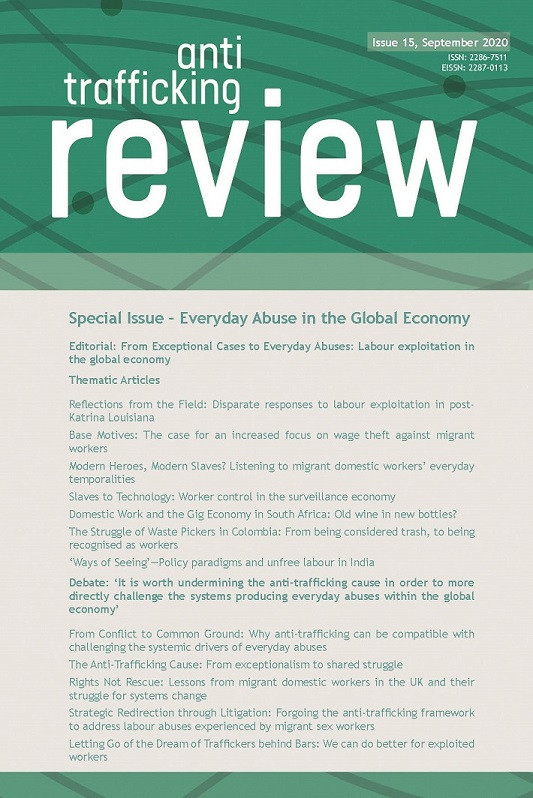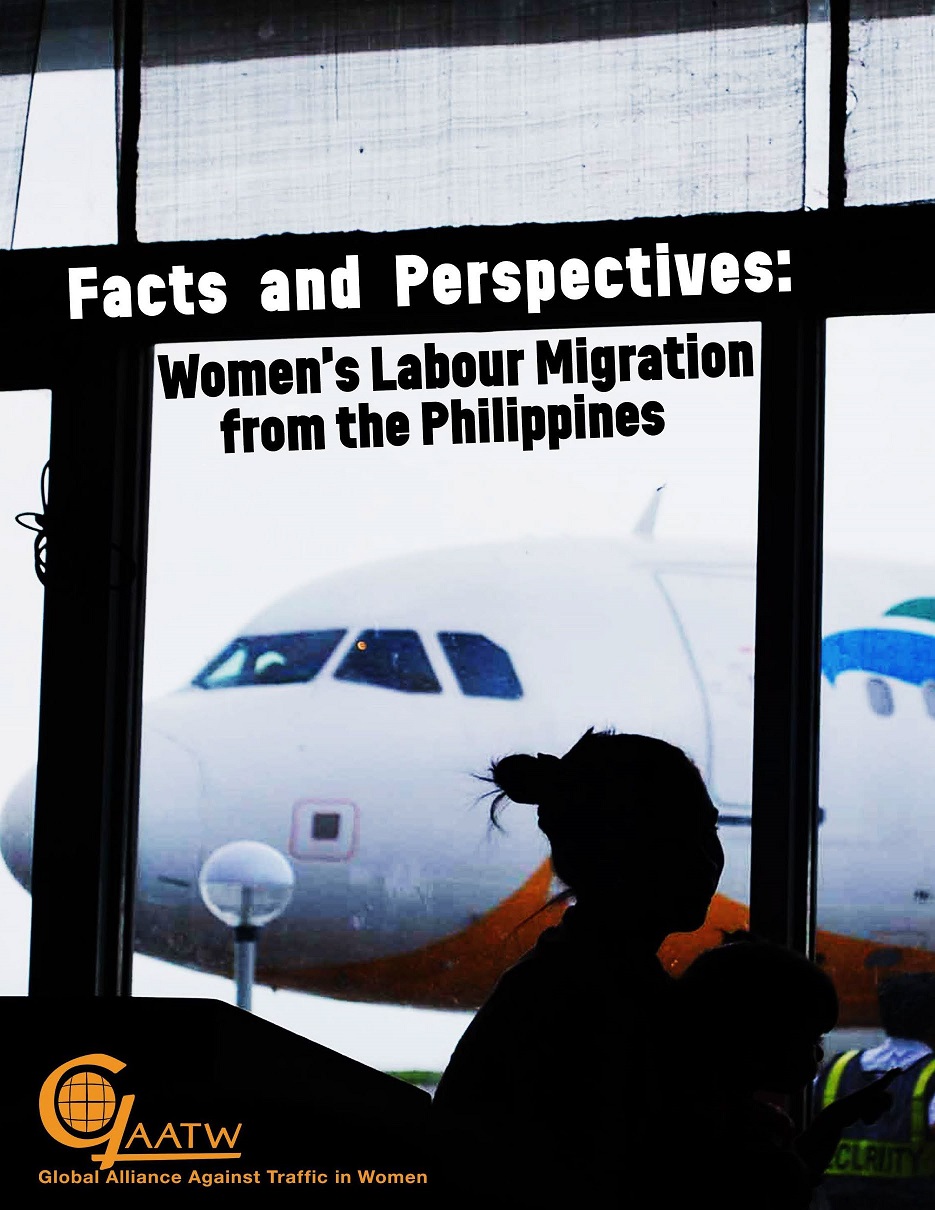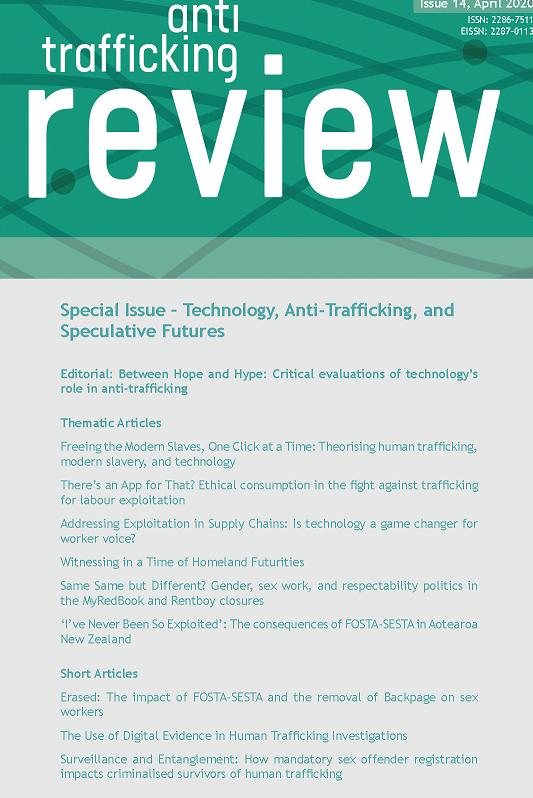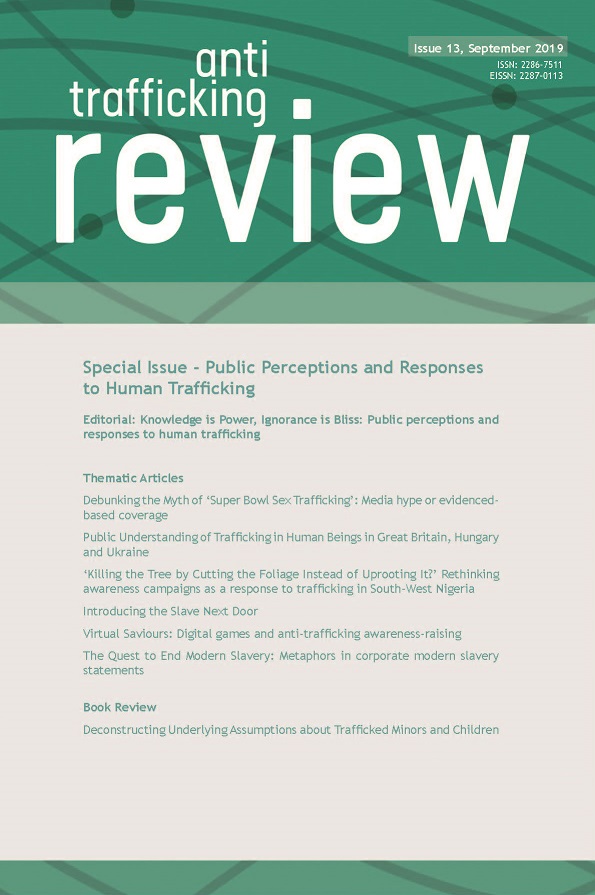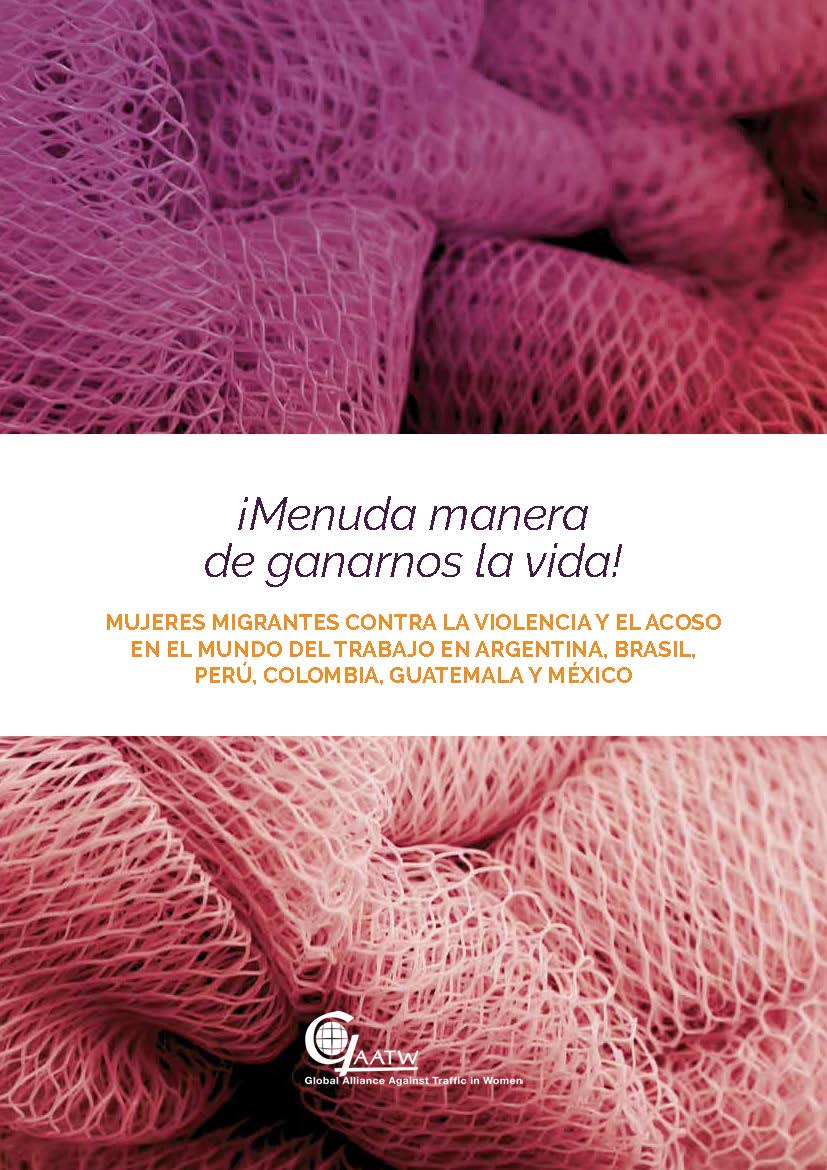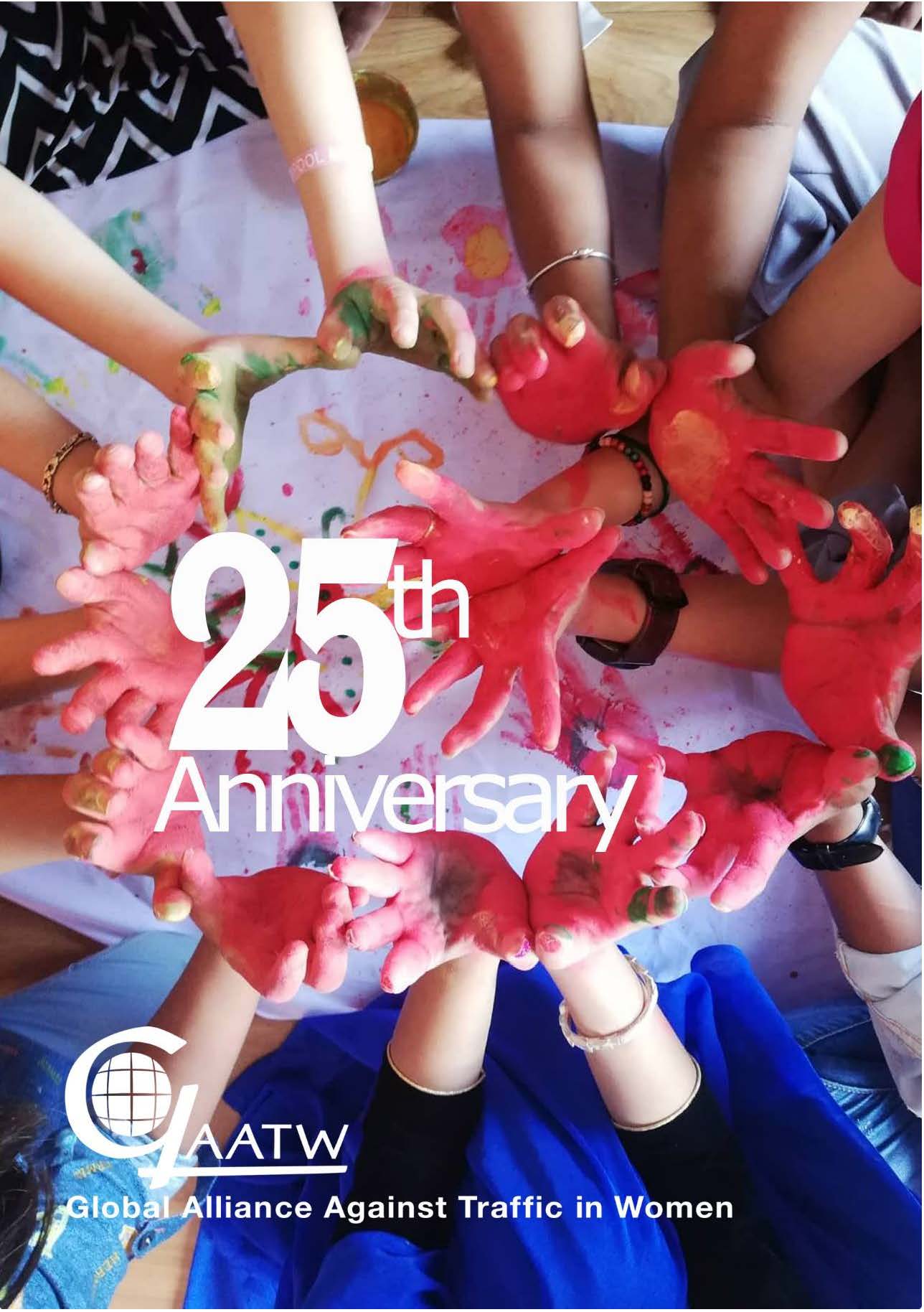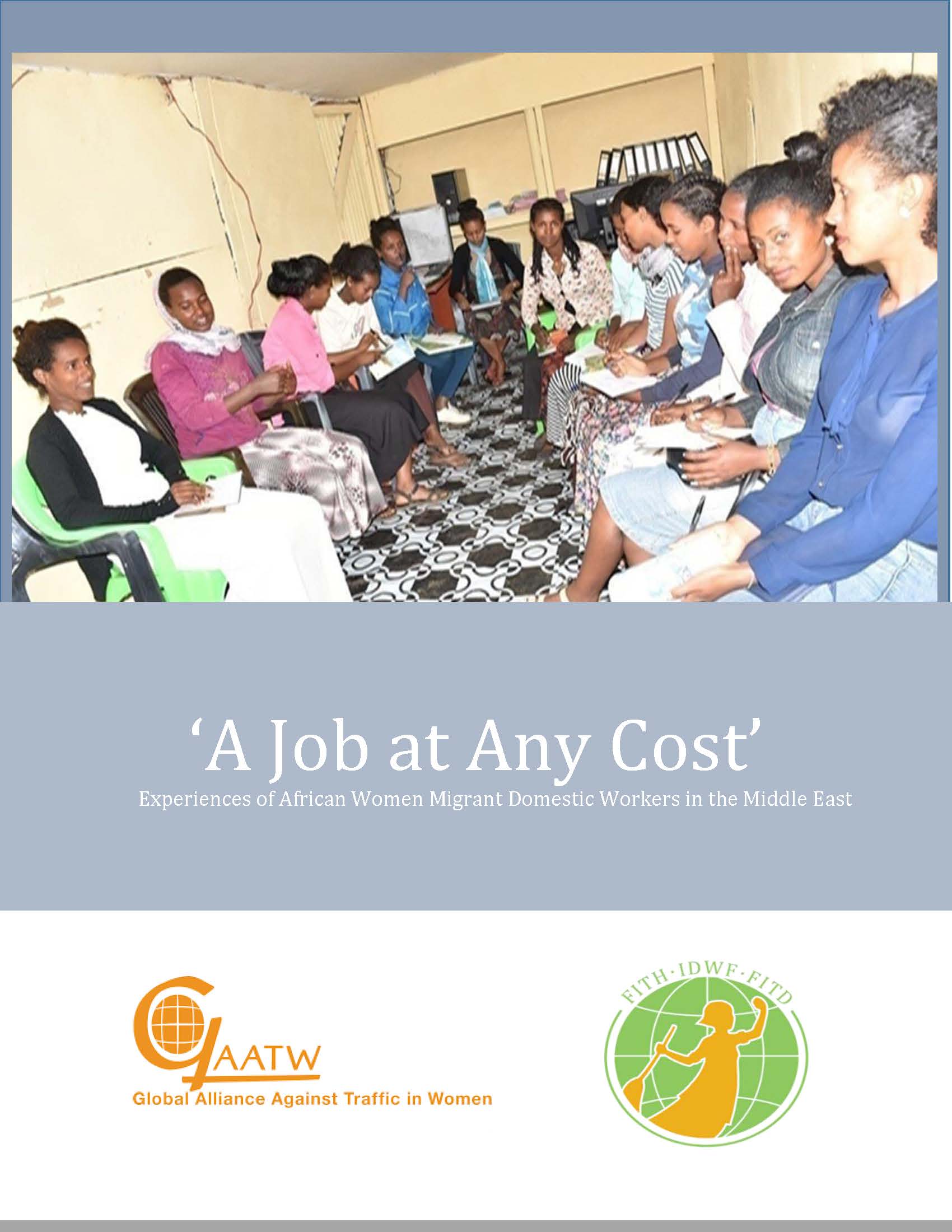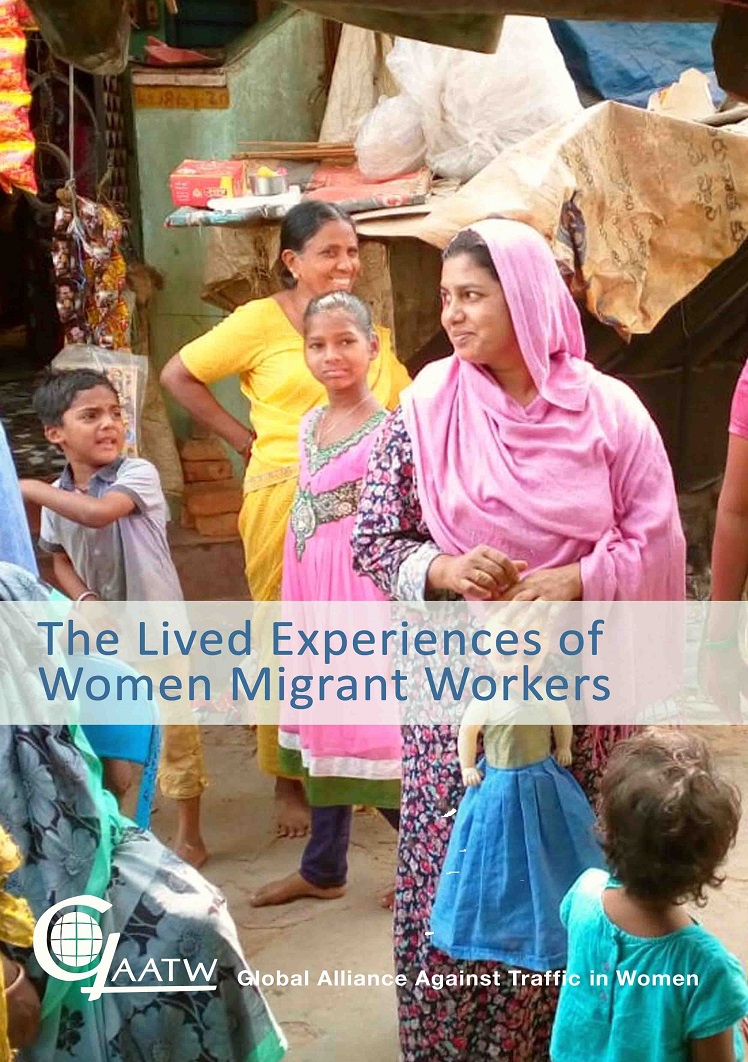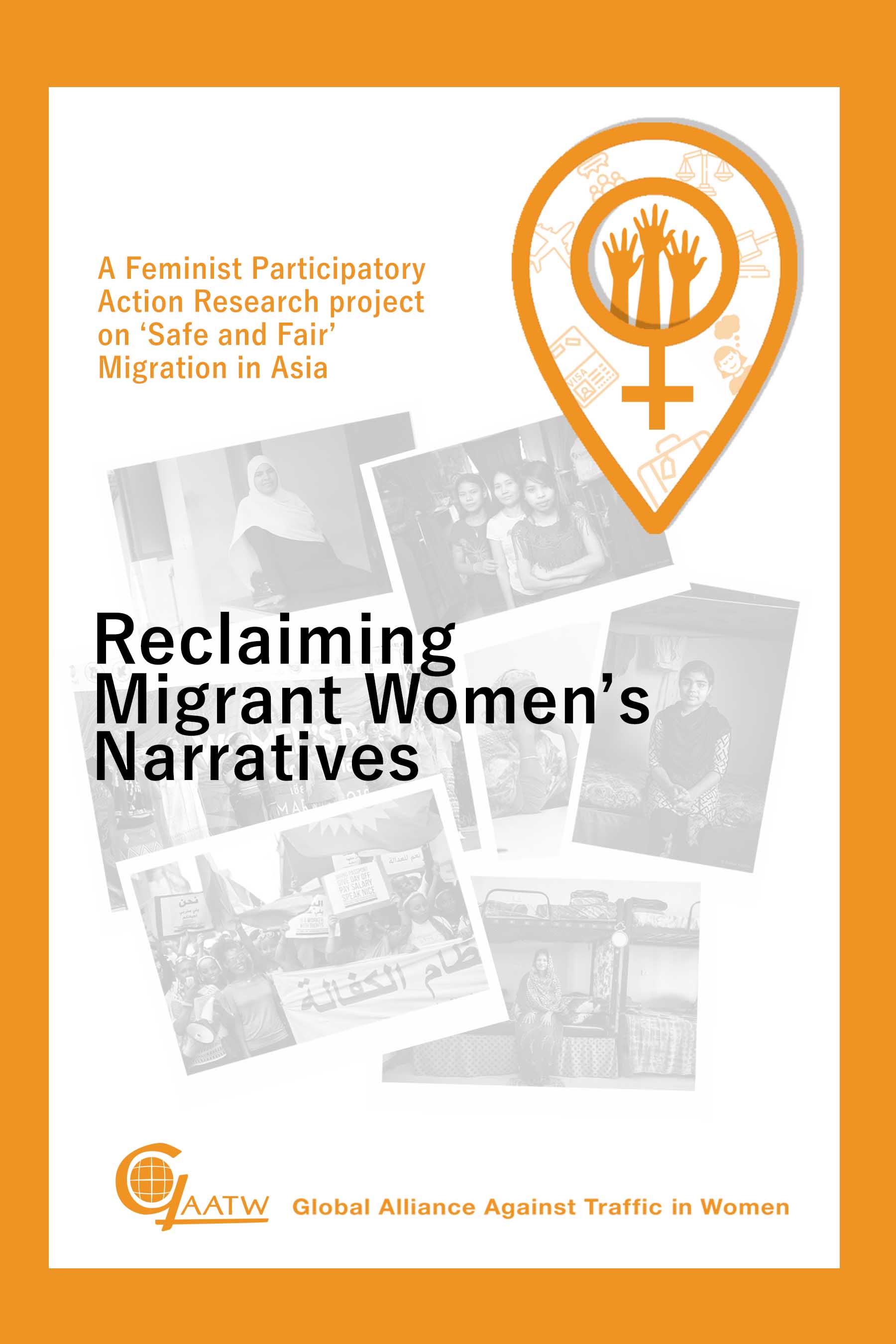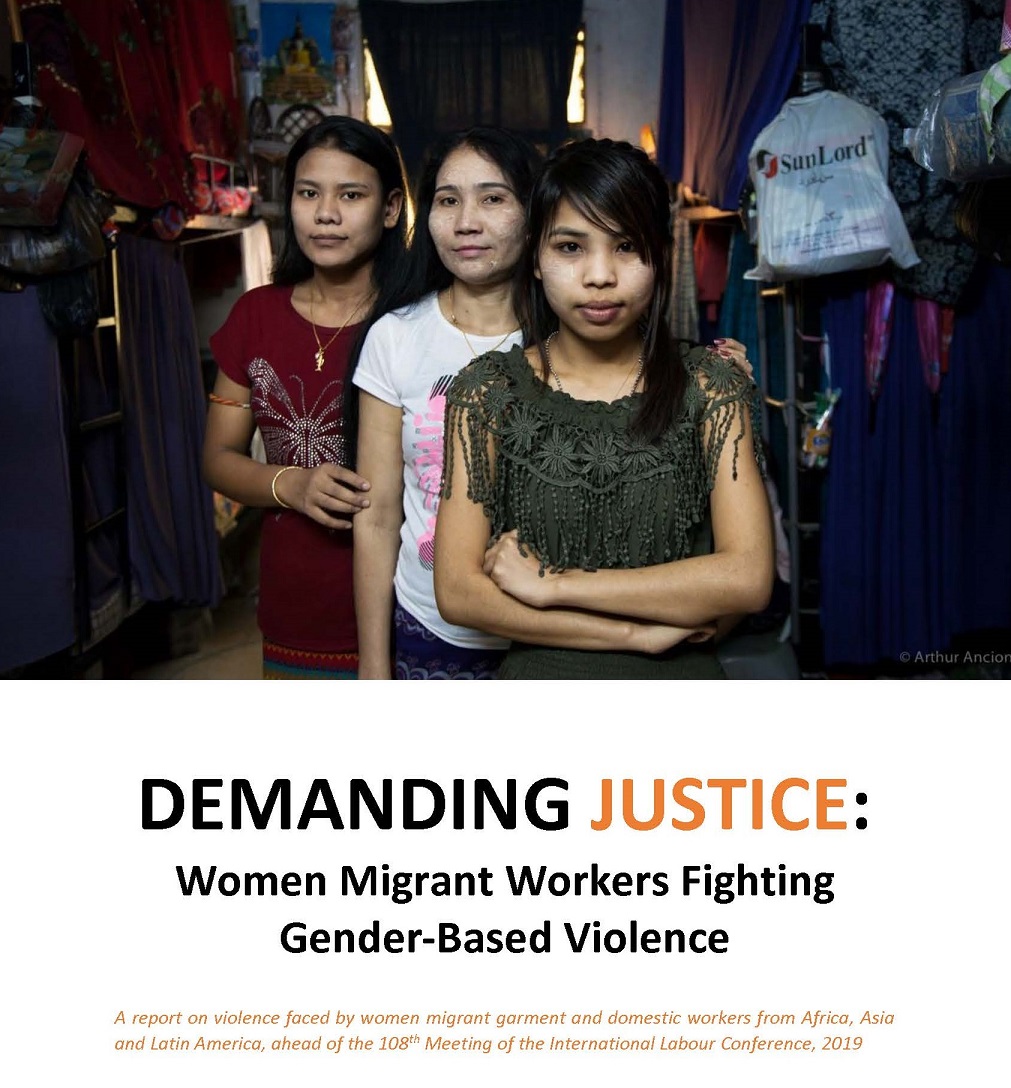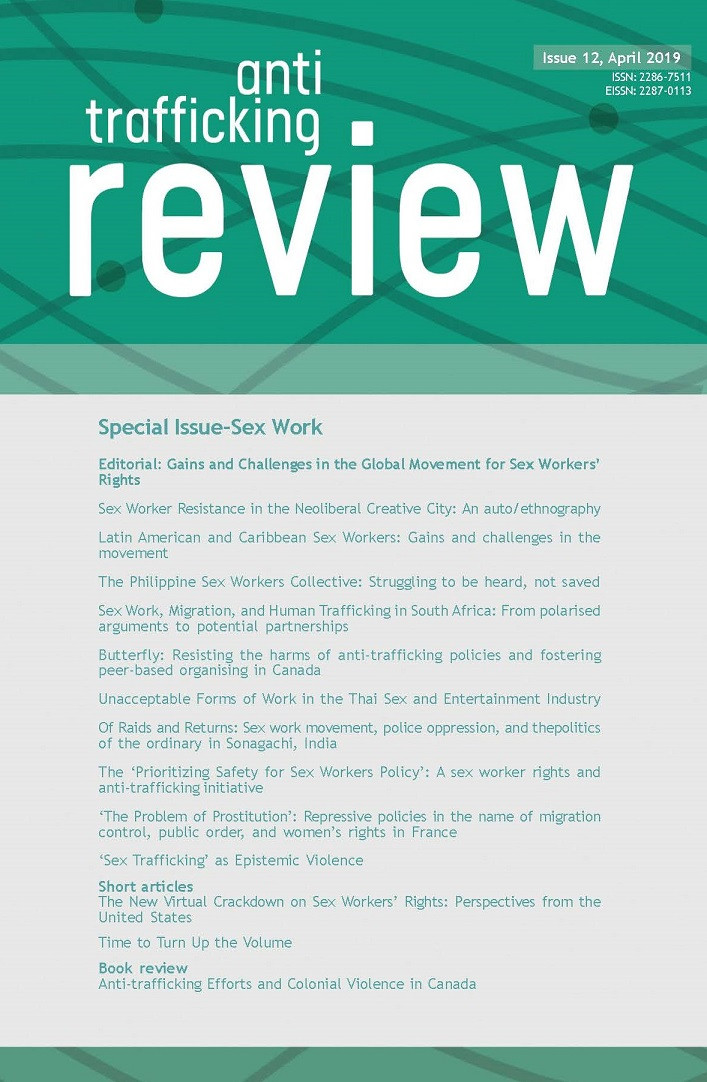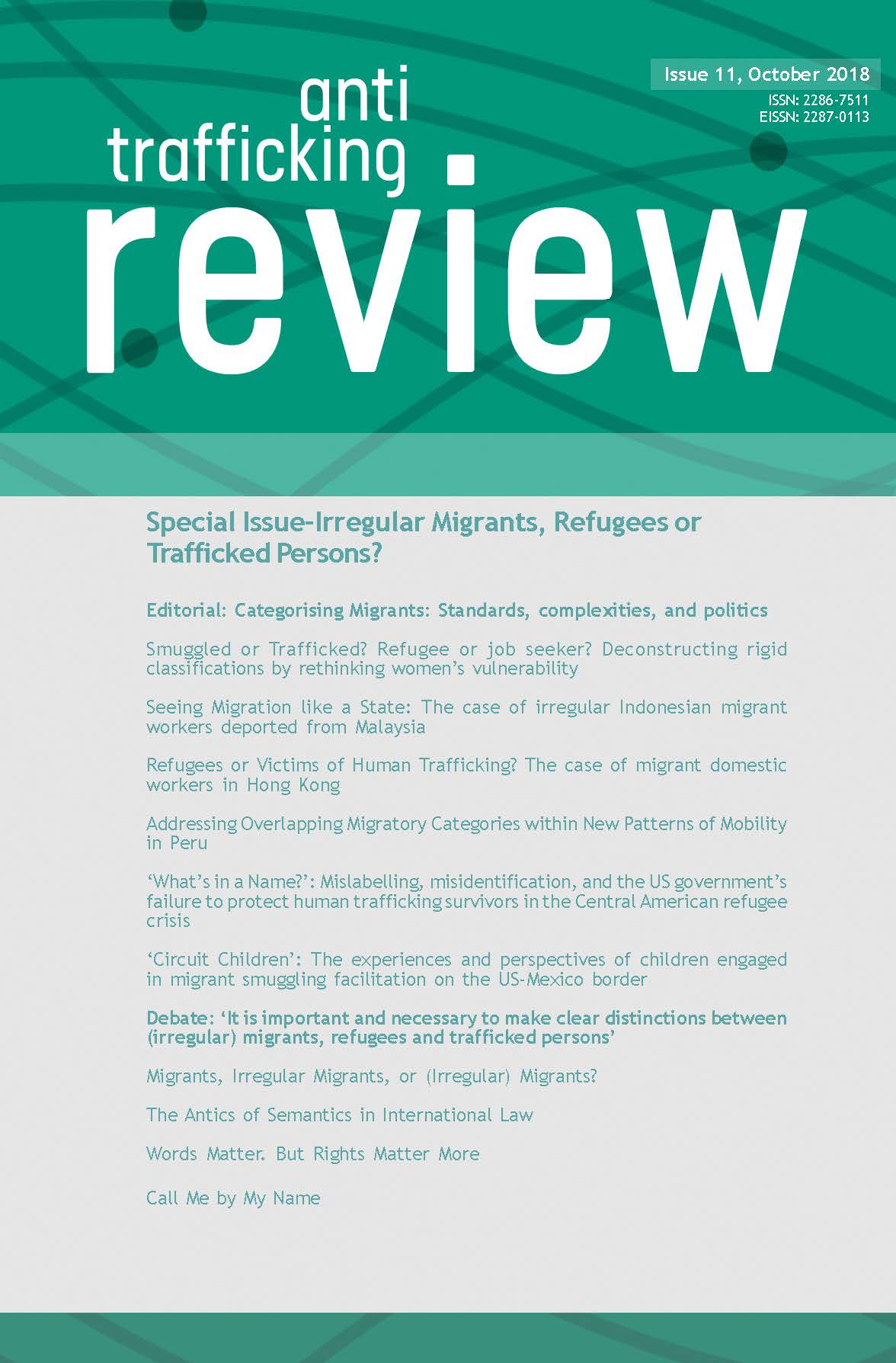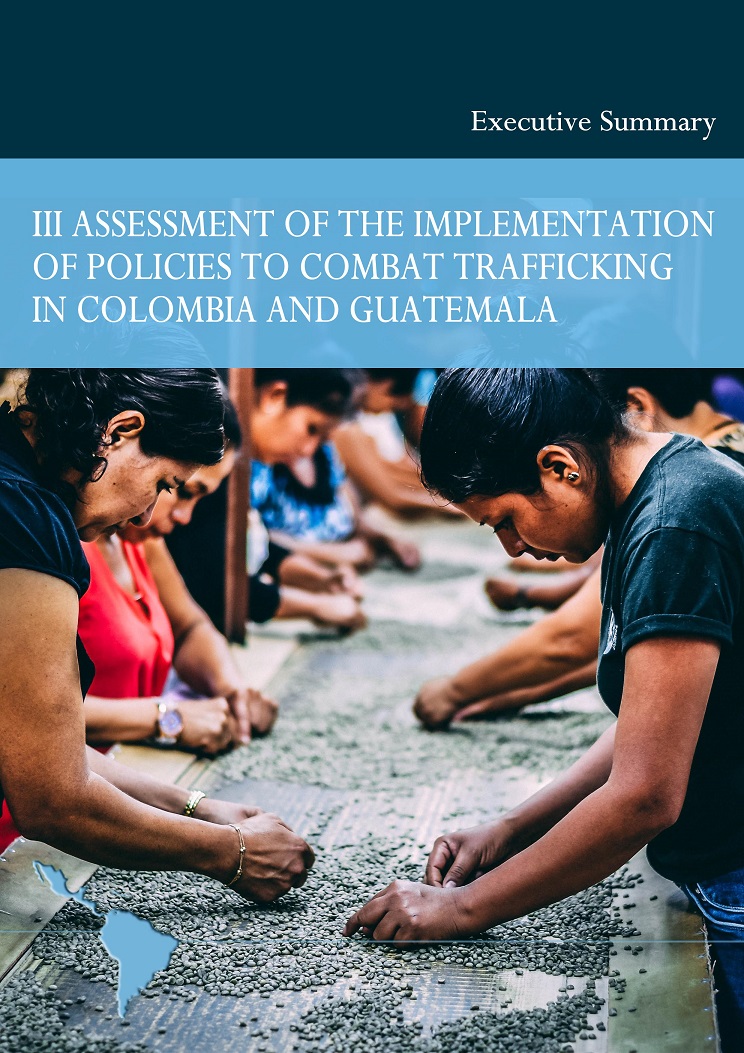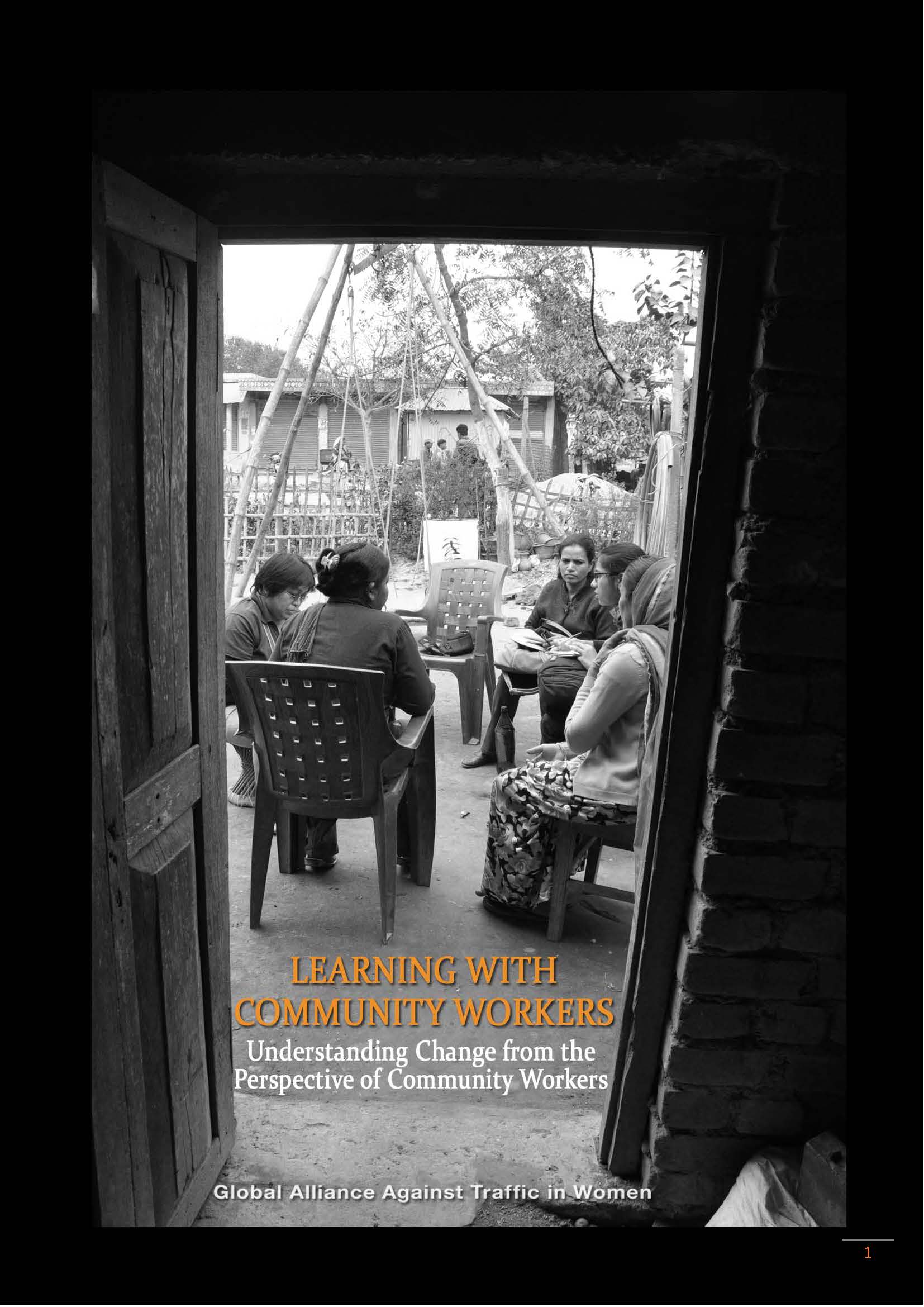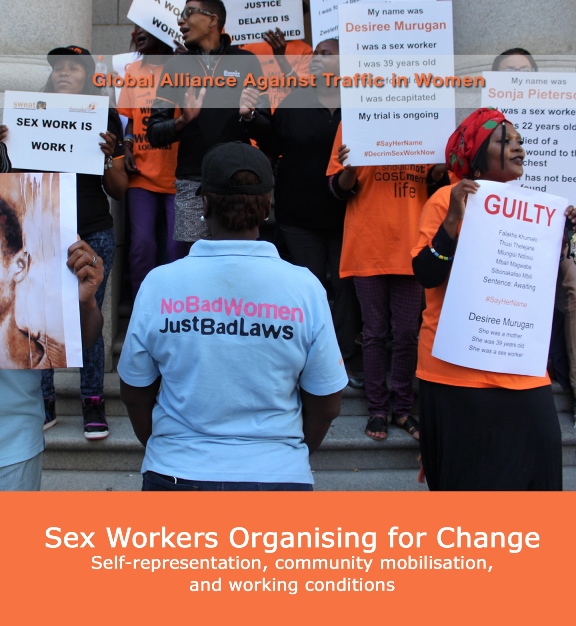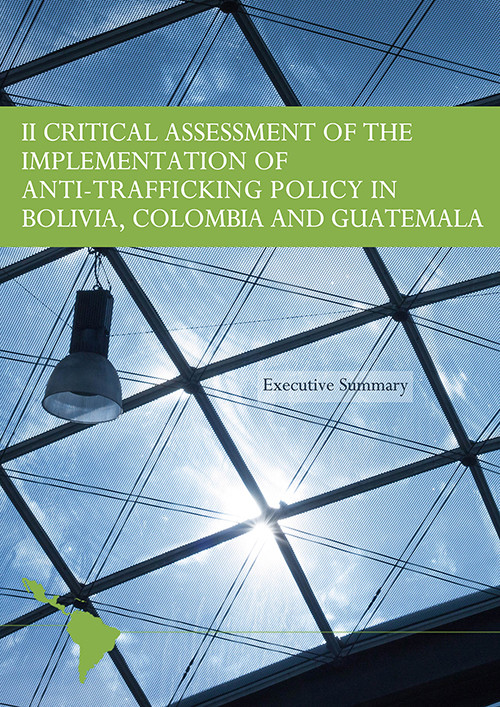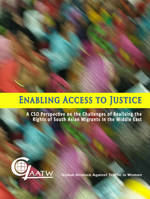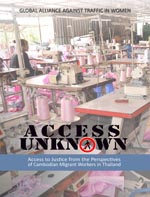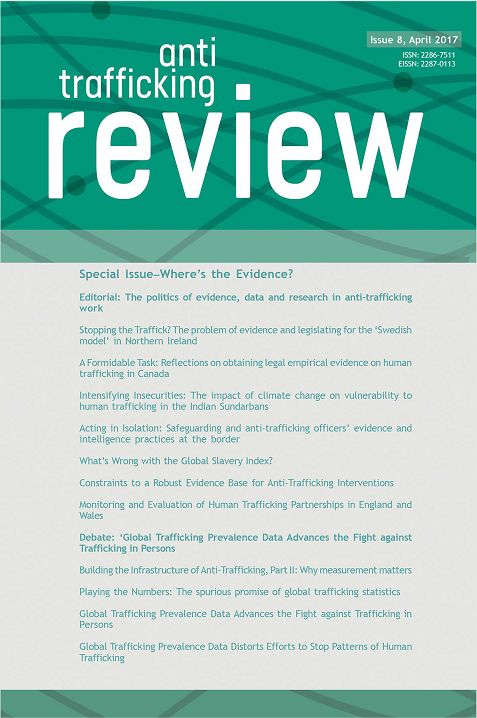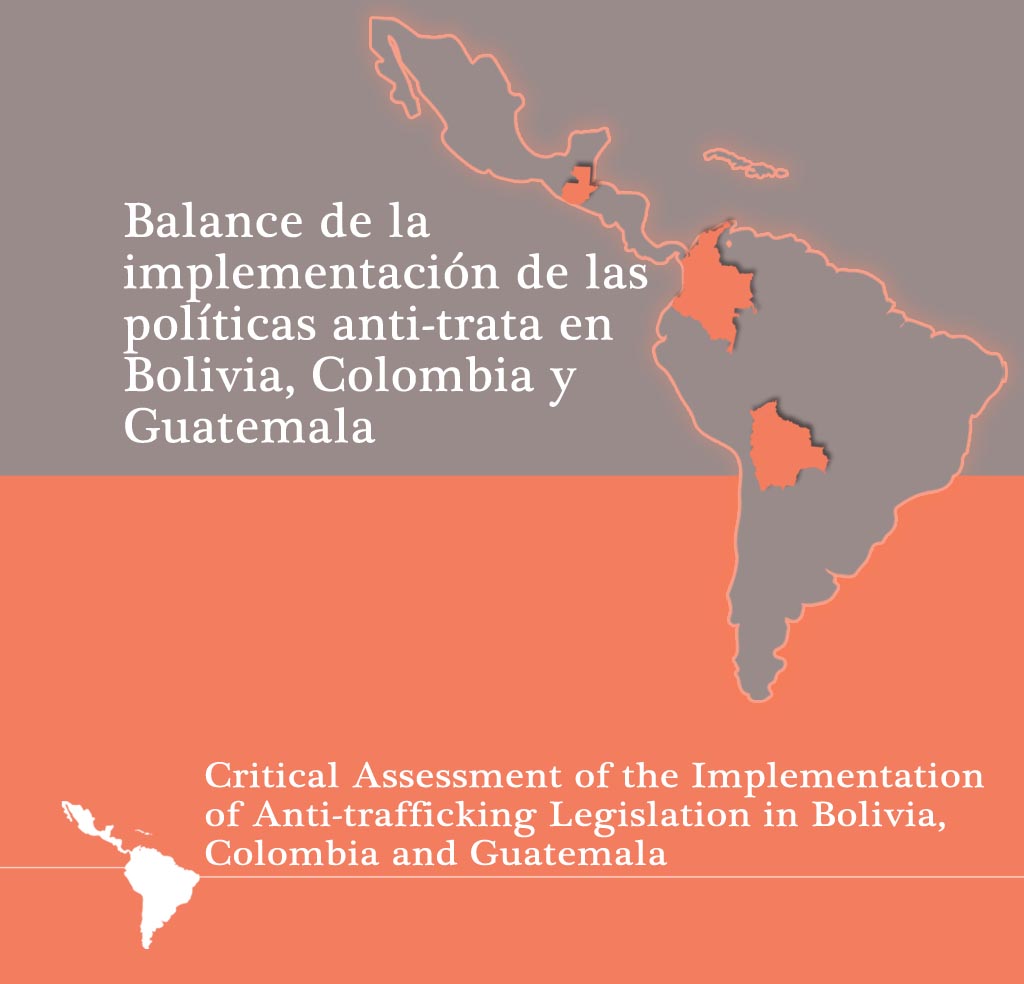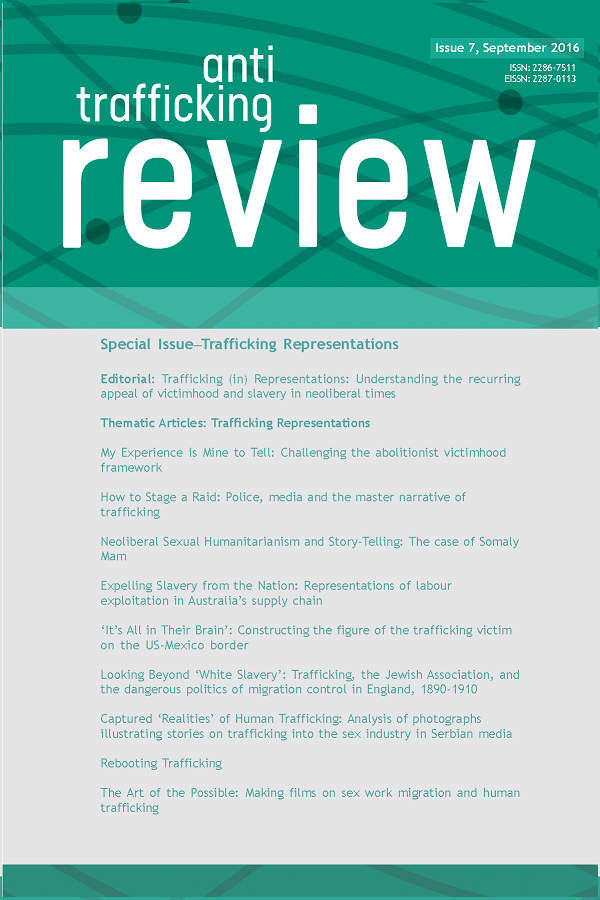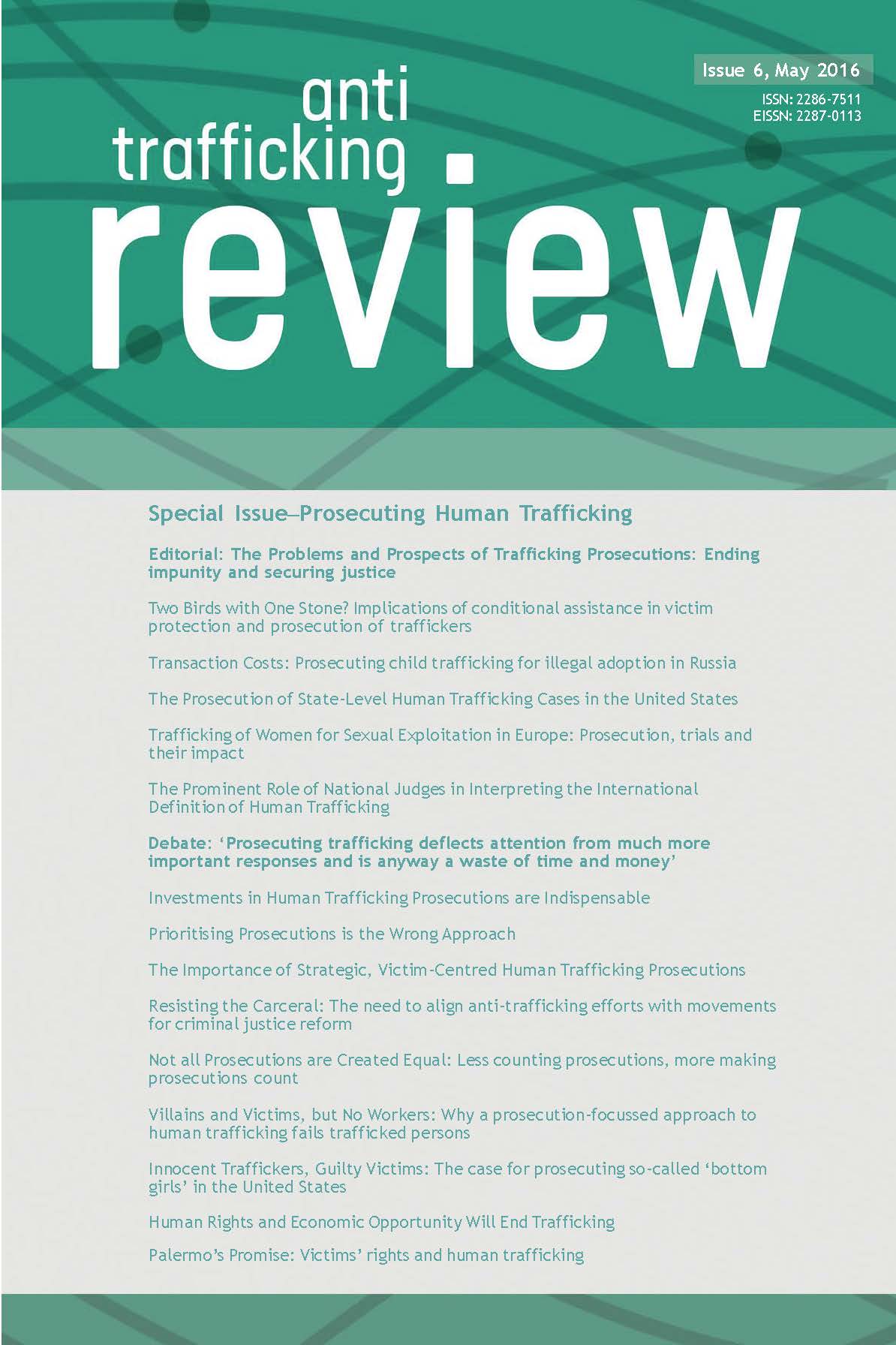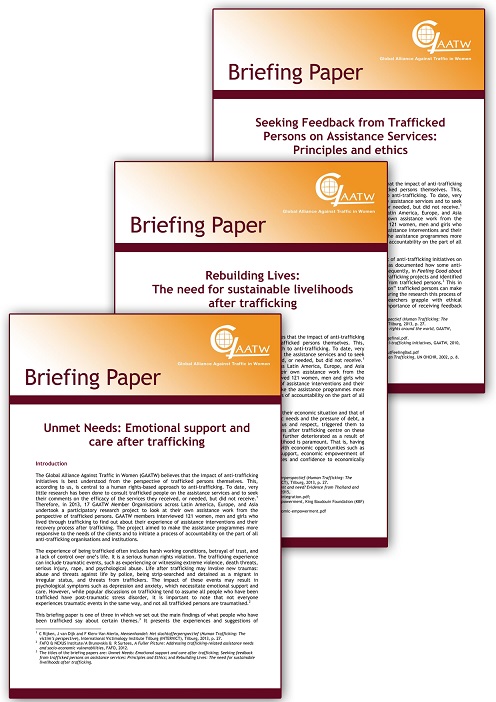E-Bulletin January 2017 - News from the GAATW International Secretariat
Rights and Justice in the Context of Labour Migration
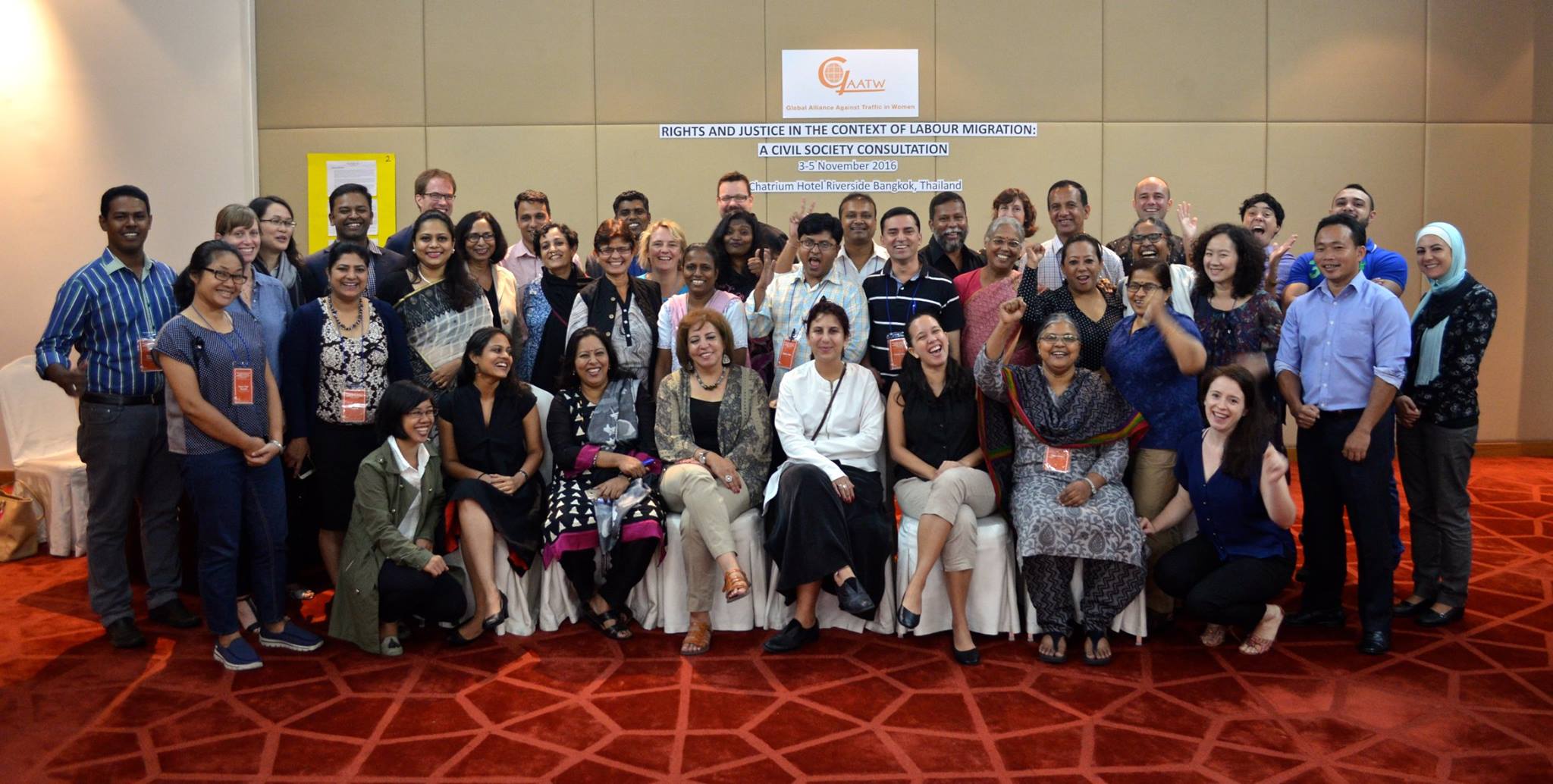 Access to justice remains a significantly underserved right for migrant workers. Very few migrant workers, whether in countries of work or upon returning home are able to access sufficient support services, legal aid, or justice institutions to remedy the violations they experience. To understand and respond to this gap, in November, the GAATW-IS organised a civil society consultation on rights and justice in the context of labour migration.
Access to justice remains a significantly underserved right for migrant workers. Very few migrant workers, whether in countries of work or upon returning home are able to access sufficient support services, legal aid, or justice institutions to remedy the violations they experience. To understand and respond to this gap, in November, the GAATW-IS organised a civil society consultation on rights and justice in the context of labour migration.
We welcomed over 50 participants including migrant, labour and anti-trafficking organisations providing direct services and legal support, migrant rights networks, trade unionists, donor partners, academics, and other stakeholders from South and Southeast Asia, the Middle East, Europe and the United States. Over the course of three days, we articulated a collective vision of ‘justice’, discussed challenges and opportunities to accessing justice, and the steps that civil society, governments, and policy makers need to take to ensure transformative change for migrant workers.
Throughout the consultation, participants returned to a crucial point: in a world where neoliberal economic policy, conflict, and a weakening labour rights movement is driving migration and the increasing informalisation and precarity of labour, the space for migrants and migrant workers to assert their rights is becoming increasingly small. This consultation provided a rare opportunity for NGOs working in both countries of origin and destination to meet together in person to voice and discuss the challenges facing migrant workers and to share information on how to collaborate and, ultimately, make this space larger. We reiterated that at the heart of our conversations are the people who risk their lives for their rights to livelihood, dignity and safe passage. Participants acknowledged that we stand at a critical juncture, historically, in the political discourse around the rights of migrants, and therefore we must act as one to take advantage of this opportunity to influence global policy and political trends.
GAATW at the Global Forum on Migration and Development
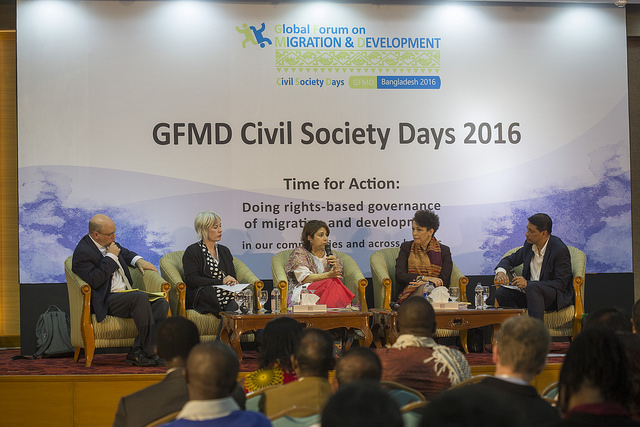 In December GAATW took part in the Global Forum on Migration and Development (GFMD), held in Dhaka, Bangladesh. The GFMD is an annual meeting to discuss migration and development issues, held since 2007. While the meeting formally refers to a meeting between governments, civil society has, over the years, carved out a role in both the forum itself, and by holding independent meetings prior to and in protest against the exclusionary government process.
In December GAATW took part in the Global Forum on Migration and Development (GFMD), held in Dhaka, Bangladesh. The GFMD is an annual meeting to discuss migration and development issues, held since 2007. While the meeting formally refers to a meeting between governments, civil society has, over the years, carved out a role in both the forum itself, and by holding independent meetings prior to and in protest against the exclusionary government process.
GAATW-IS, along with members, partners and allied migrant rights networks from across the globe met to discuss trends in migration and migration policy, challenges faced by migrants, and to articulate a vision of justice for migrants and refugees. The fact that it was organised in Bangladesh, a country of origin for many migrant workers, meant that labour rights were central to the civil society discussions held over the course of five days leading up to the government-only forum. GAATW organised two panel discussions on access to justice for migrant workers. At the first one we heard from our members and partners OKUP (Bangladesh), LSCW (Cambodia), and Tamkeen (Jordan), about the challenges and opportunities in supporting migrant workers’ rights. Another panel at Asia Civil Society Day saw partner networks Migrant Forum in Asia (William Gois) and WOREC Nepal (Renu Adhikari) join trade union organiser Nazma Akhter and returnee migrant worker and organiser Sheikh Rumana discuss the challenges migrant workers face in the context of changing social and political contexts in the region.
Central to the discussions among civil society were the emerging mechanisms around the governance of migration, especially the Global Compacts on Migration and on Refugees - international mechanisms which will be negotiated and agreed upon by the end of 2018. The final form of the compacts is not yet set in stone and there were discussions about whether or not an eventual Compact would more closely resemble a binding convention, a voluntary initiative, or a hybrid, combining both binding and non-binding elements, and which of these forms would best serve migrant rights.
GAATW is hoping to continue our advocacy towards the Global Compact Processes through involvement in regional level consultations and at the next GFMD to be held in June in Germany. We will be in touch with members about these opportunities soon.
Conference of the Parties to the UN Transnational Organised Crime Convention
 In October, GAATW European Board Member Evelyn Probst, as well as representatives of several other member organisations, participated in the 8th Session of the Conference of the Parties to the UN Convention against Transnational Organised Crime (UNTOC) took place in October 2016 in Vienna, Austria. The aim of the Conference is to improve the capacity of States Parties to combat transnational organised crime and to promote and review the implementation of this Convention.
In October, GAATW European Board Member Evelyn Probst, as well as representatives of several other member organisations, participated in the 8th Session of the Conference of the Parties to the UN Convention against Transnational Organised Crime (UNTOC) took place in October 2016 in Vienna, Austria. The aim of the Conference is to improve the capacity of States Parties to combat transnational organised crime and to promote and review the implementation of this Convention.
Since the adoption and ratifications of the Convention and its protocols GAATW has lobbied for the development and establishment of a mechanism that would review its implementation by member states and make them accountable, in particular to trafficked persons. Although a few years ago the momentum for such a mechanism seemed to have faded away, in 2015 UNODC convened the first Open-ended Intergovernmental Meeting to Explore All Options Regarding an Appropriate and Effective Review Mechanism for UNTOC and the Protocols thereto and a second one in 2016. At this 8th session states agreed on a draft resolution to establish the review mechanism. While the procedures for the mechanism will be developed in the next two years, it is concerning that at the moment the resolution mentions civil society only once – to be consulted by governments, ‘where appropriate’. The involvement of civil society in the review mechanism is essential to ensuring the accountability of states and the representation of trafficked persons’ interests. In Europe, the monitoring body of the Council of Europe Convention – GRETA – make extensive use of civil society contributions and civil society has been highly appreciative of the review process. On the positive side, the mechanism will not rank countries and will make use of existing national and regional mechanisms. At the meeting GAATW, together with several members and other NGOs, read a statement stressing the need for a meaningful participation of NGOs in both the development of the mechanism and the review process. We will follow the process closely and try to influence states to ensure the meaningful participation of civil society.
During the Conference we also organised a side event to present the 6th issue of the Anti-Trafficking Review ‘Prosecuting Human Trafficking’. The participants in the panel were the issue guest editor Anne Gallagher and three of the authors – the Dutch National Rapporteur on Trafficking Corinne Dettmeijer, as well as Biljana Meshkovska and Inga Thiemann, while Evelyn Probst moderated. The authors presented their articles, focusing on different aspects of trafficking prosecutions, while Evelyn Probst and Anne Gallagher moderated the discussion that followed.
Response to UN Women consultation on sex work
In September UN Women published a call for submissions to a ‘Consultation seeking views on UN Women approach to sex work, the sex trade and prostitution’, which will assist the development of a UN Women position on the issue.
Reaffirming our support for the rights of sex workers and the need for sex workers to be consulted in matters affecting their lives, we submitted a response, co-signed by 24 of our members. In it, we stress the need for a clear distinction between sex work and trafficking and that the decriminalisation of sex work is the only policy that has the potential to improve the position of sex workers and reduce violence and coercion, including trafficking, in the sex industry. We also joined a submission prepared by CREA and the Global Network of Sex Work Projects (NSWP) and co-signed by 190 sex workers rights, women’s rights and human rights organisations, which outlines five basic principles that UN Women should follow in order to develop a policy that is truly grounded in human rights.
Prior to the submissions deadline, NSWP expressed concerns about the consultation process and launched a petition, urging UN Women to meaningfully consult with sex workers in the development of their policy. According to NSWP, the process ‘is biased towards those with privilege and will exclude the majority of sex workers in the global south who have limited access to the Internet; most of whom are not literate in the colonialist languages of the United Nations and are not familiar with UN treaties and documents that guide UN Women, and around which their consultation is framed.’
The UN Women policy is expected to be finalised and published later in 2017.
Access to Justice for Exploited Cambodian Workers in Thailand
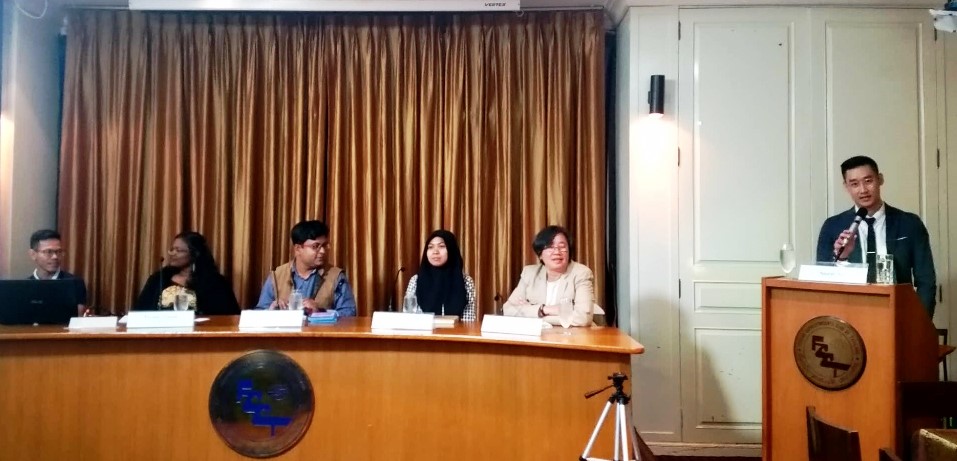 In 2016 we conducted research among Cambodian migrant workers exploited in Thailand with the aim of understanding the obstacles they face in claiming their rights and accessing justice and how service providers can support them more effectively (see more about the research in the October e-bulletin). To share some of the findings of the research and compare them with other countries, on 4 November we hosted a forum on building strategic alliances for access to justice for migrant workers. We were joined by Vichuta Ly from our Cambodian member LSCW, Koreeyor Manuchae from the Migrant Working Group Thailand, Prema Arasan from Tenaganita (Malaysia), and Shakirul Islam from OKUP (Bangladesh) for an open discussion about the challenges we face as advocates and service providers in addressing some of the barriers for migrant workers accessing justice. We also used this space to focus on best practices and share positive experiences from our work.
In 2016 we conducted research among Cambodian migrant workers exploited in Thailand with the aim of understanding the obstacles they face in claiming their rights and accessing justice and how service providers can support them more effectively (see more about the research in the October e-bulletin). To share some of the findings of the research and compare them with other countries, on 4 November we hosted a forum on building strategic alliances for access to justice for migrant workers. We were joined by Vichuta Ly from our Cambodian member LSCW, Koreeyor Manuchae from the Migrant Working Group Thailand, Prema Arasan from Tenaganita (Malaysia), and Shakirul Islam from OKUP (Bangladesh) for an open discussion about the challenges we face as advocates and service providers in addressing some of the barriers for migrant workers accessing justice. We also used this space to focus on best practices and share positive experiences from our work.
In December we organised a meeting with groups from Thailand and Cambodia where we presented the findings from our report, which will be published in February, and discussed the concrete actions to be planned for 2017 with an emphasis on cross-border cooperation to better support Cambodian migrant workers. A first regional meeting will take place in February, where both Thai and Cambodian organisations will finalise a consolidated outreach document, coordinate advocacy, and discuss case referral, self-organising and cross-border network mapping, among others.
A Rights-Based Approach to Anti-Trafficking
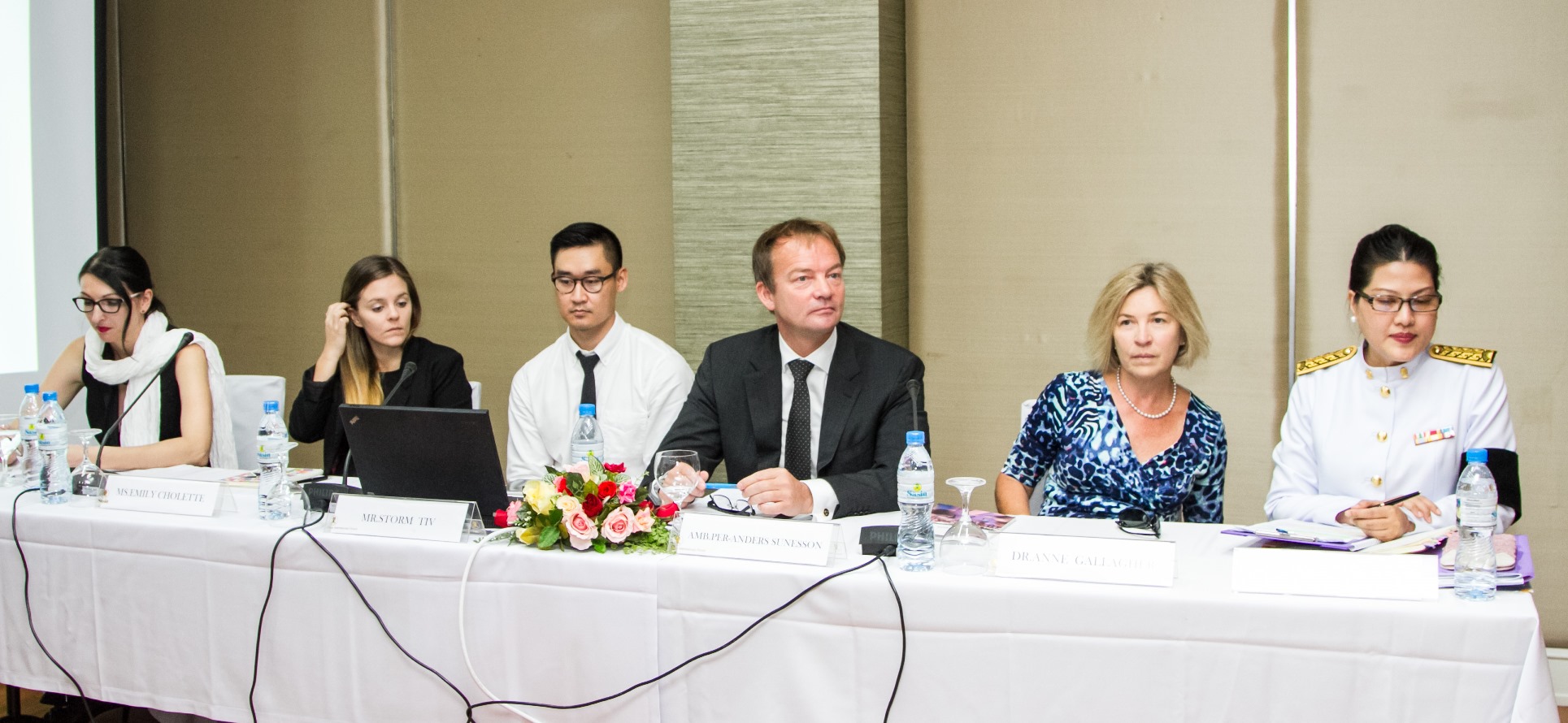 On 25 October GAATW-IS co-hosted a panel discussion ‘A Rights-Based Approach to Anti-Trafficking: Lessons from Asia and Europe’, together with the Asian Research Centre for Migration at Chulalongkorn University, organised by the Asia-Europe Foundation. The aim was to share best practices and identify emerging trends in Asia and Europe. The panel included presentations by: Anne Gallagher – on the need to include human rights in anti-trafficking work and the progress made since the 1990s; Per-Anders Sunesson (Swedish Ambassador at Large for Combatting Trafficking in Persons) – on the European and Swedish experience in combating human trafficking; Storm Tiv (GAATW Programme Officer Southeast Asia) – on the GAATW research concerning access to justice for Cambodian migrant workers in Thailand; Emily Cholette (IOM X) – on the use of new communication tools as prevention of trafficking; and Klara Skrivankova (Anti-Slavery International) – on new and emerging trends in human trafficking in the UK. The panel was moderated by Dr Ratchada Jayagupta from the Asian Research Centre for Migration. The presentations were followed by a short discussion/Q&A.
On 25 October GAATW-IS co-hosted a panel discussion ‘A Rights-Based Approach to Anti-Trafficking: Lessons from Asia and Europe’, together with the Asian Research Centre for Migration at Chulalongkorn University, organised by the Asia-Europe Foundation. The aim was to share best practices and identify emerging trends in Asia and Europe. The panel included presentations by: Anne Gallagher – on the need to include human rights in anti-trafficking work and the progress made since the 1990s; Per-Anders Sunesson (Swedish Ambassador at Large for Combatting Trafficking in Persons) – on the European and Swedish experience in combating human trafficking; Storm Tiv (GAATW Programme Officer Southeast Asia) – on the GAATW research concerning access to justice for Cambodian migrant workers in Thailand; Emily Cholette (IOM X) – on the use of new communication tools as prevention of trafficking; and Klara Skrivankova (Anti-Slavery International) – on new and emerging trends in human trafficking in the UK. The panel was moderated by Dr Ratchada Jayagupta from the Asian Research Centre for Migration. The presentations were followed by a short discussion/Q&A.



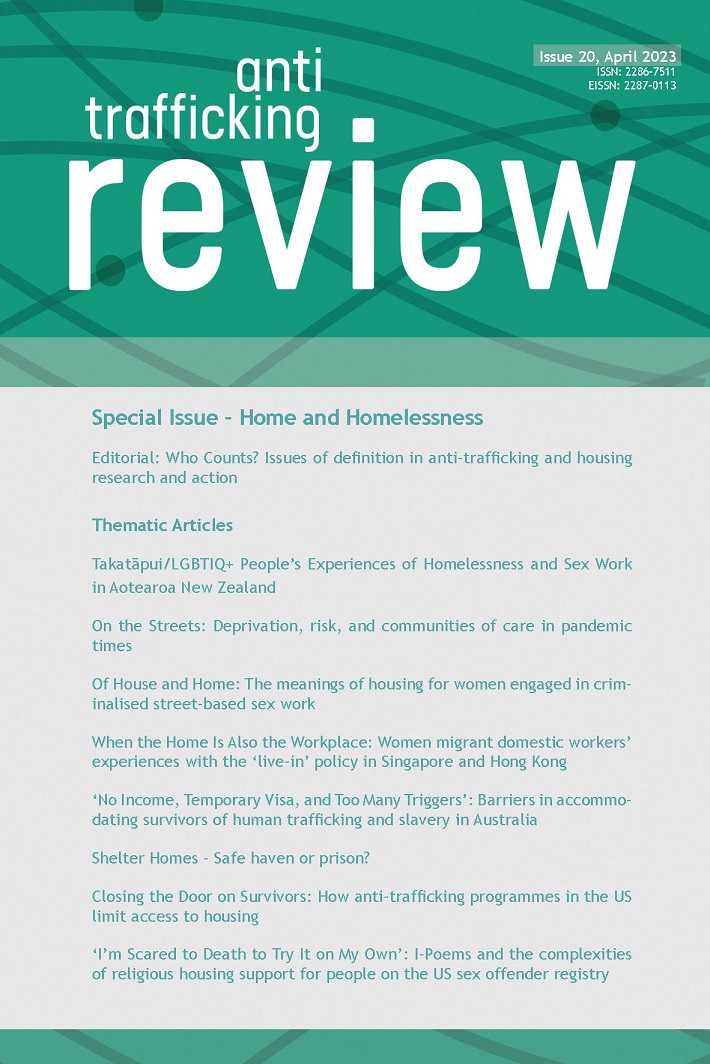
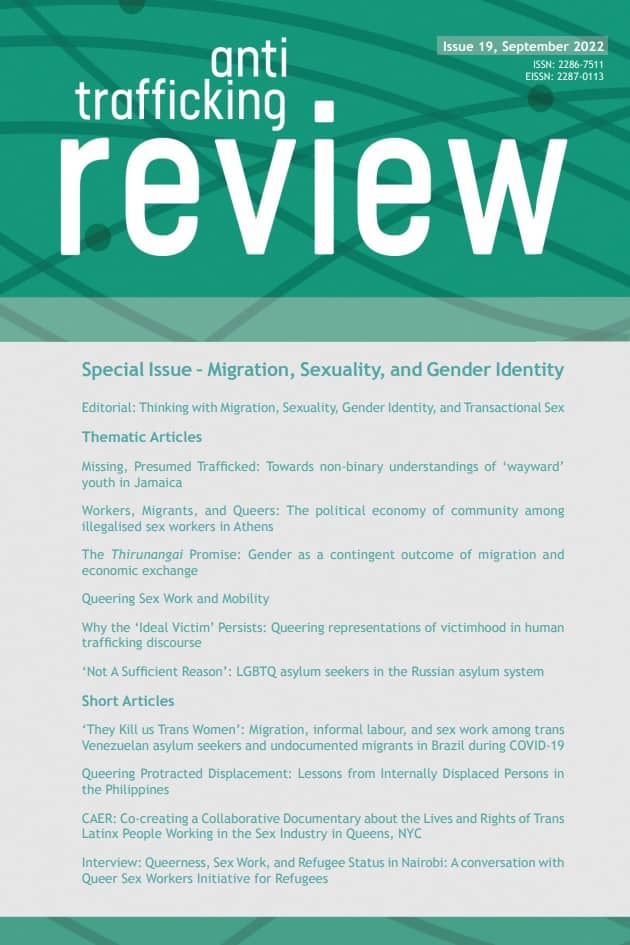
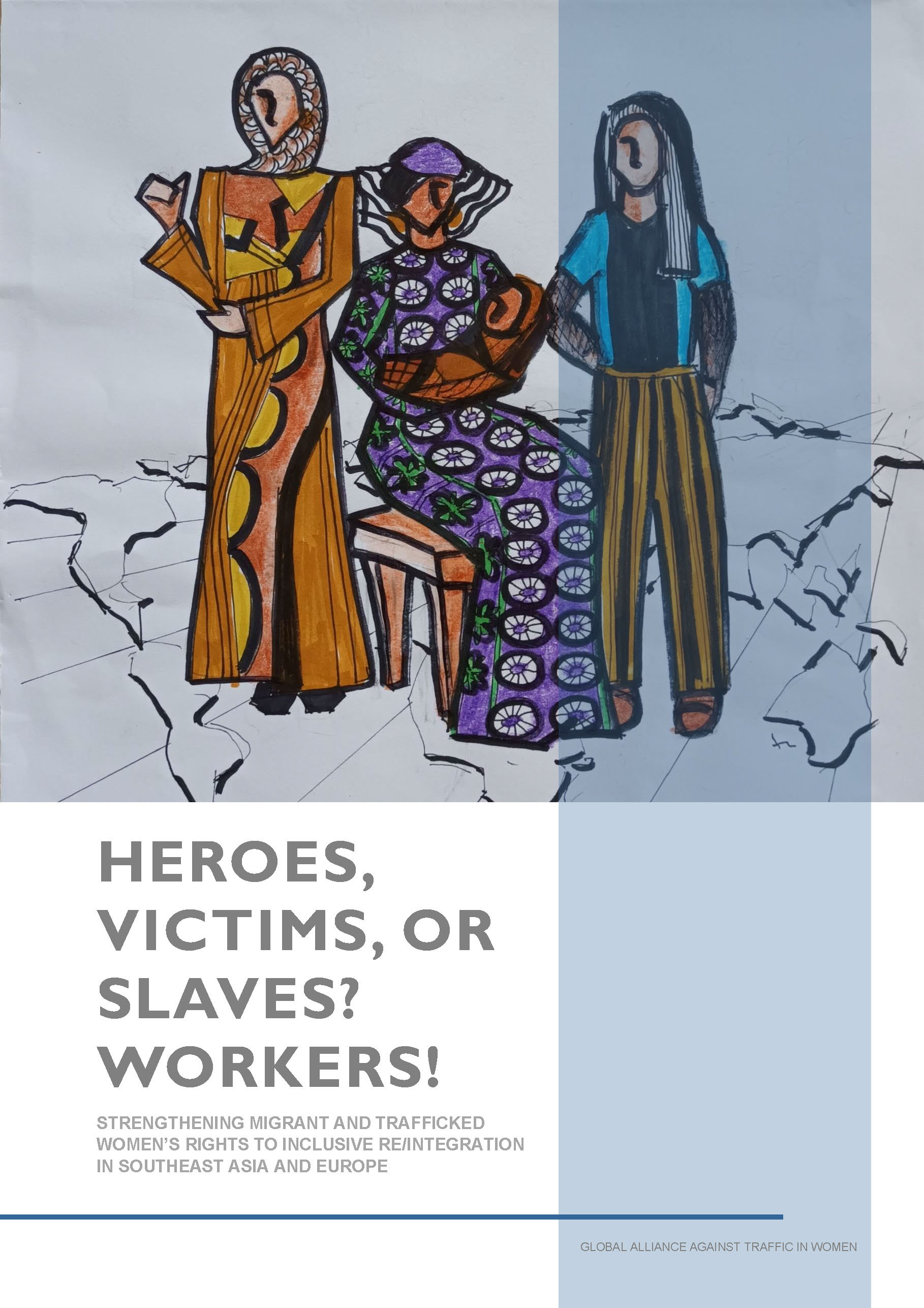
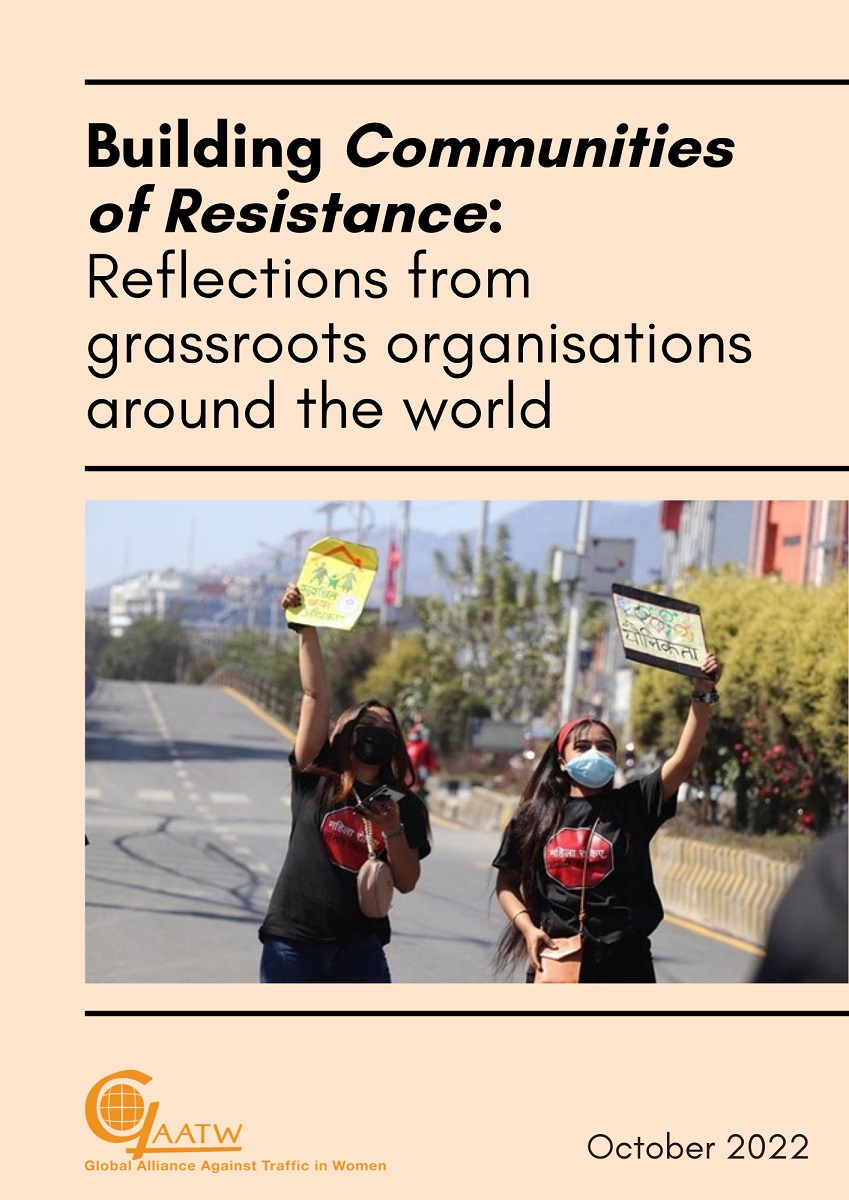
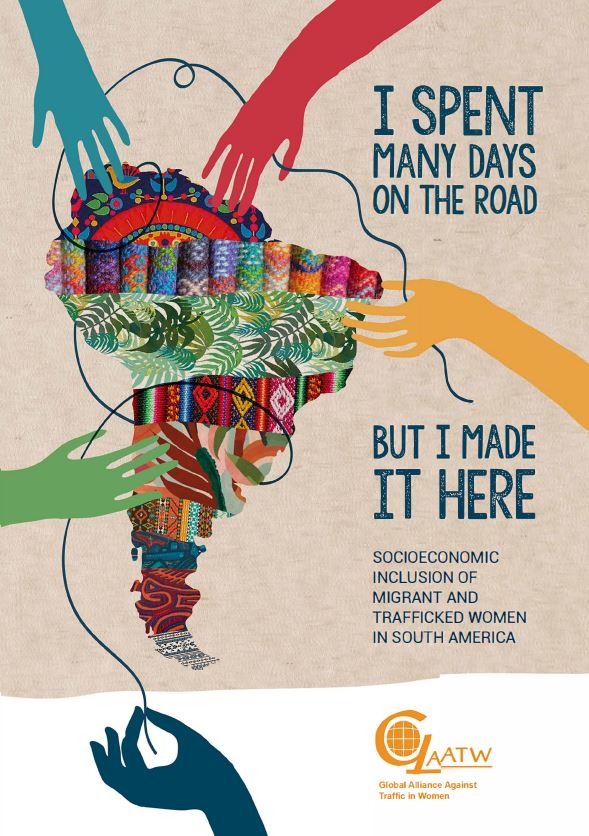
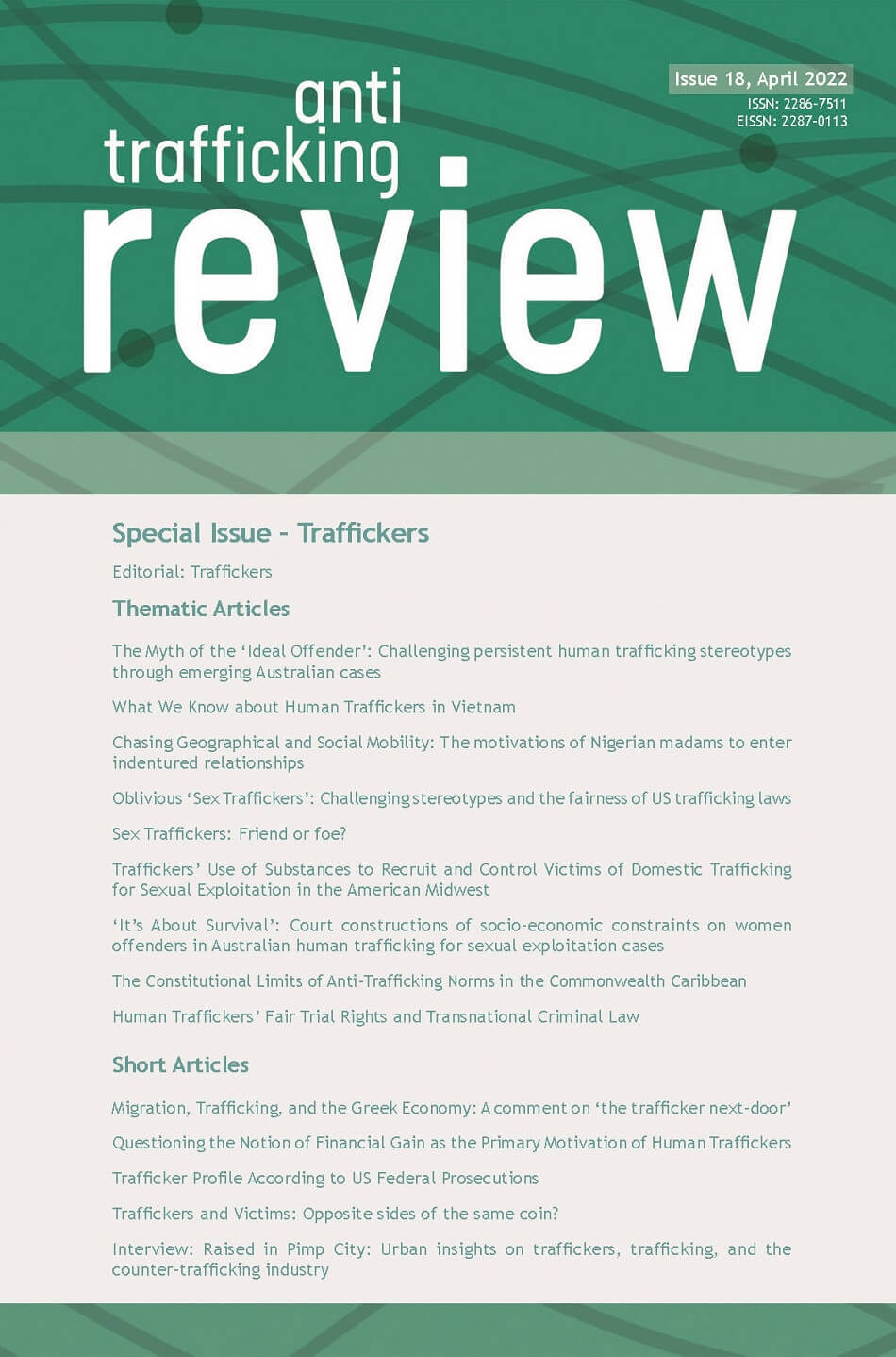
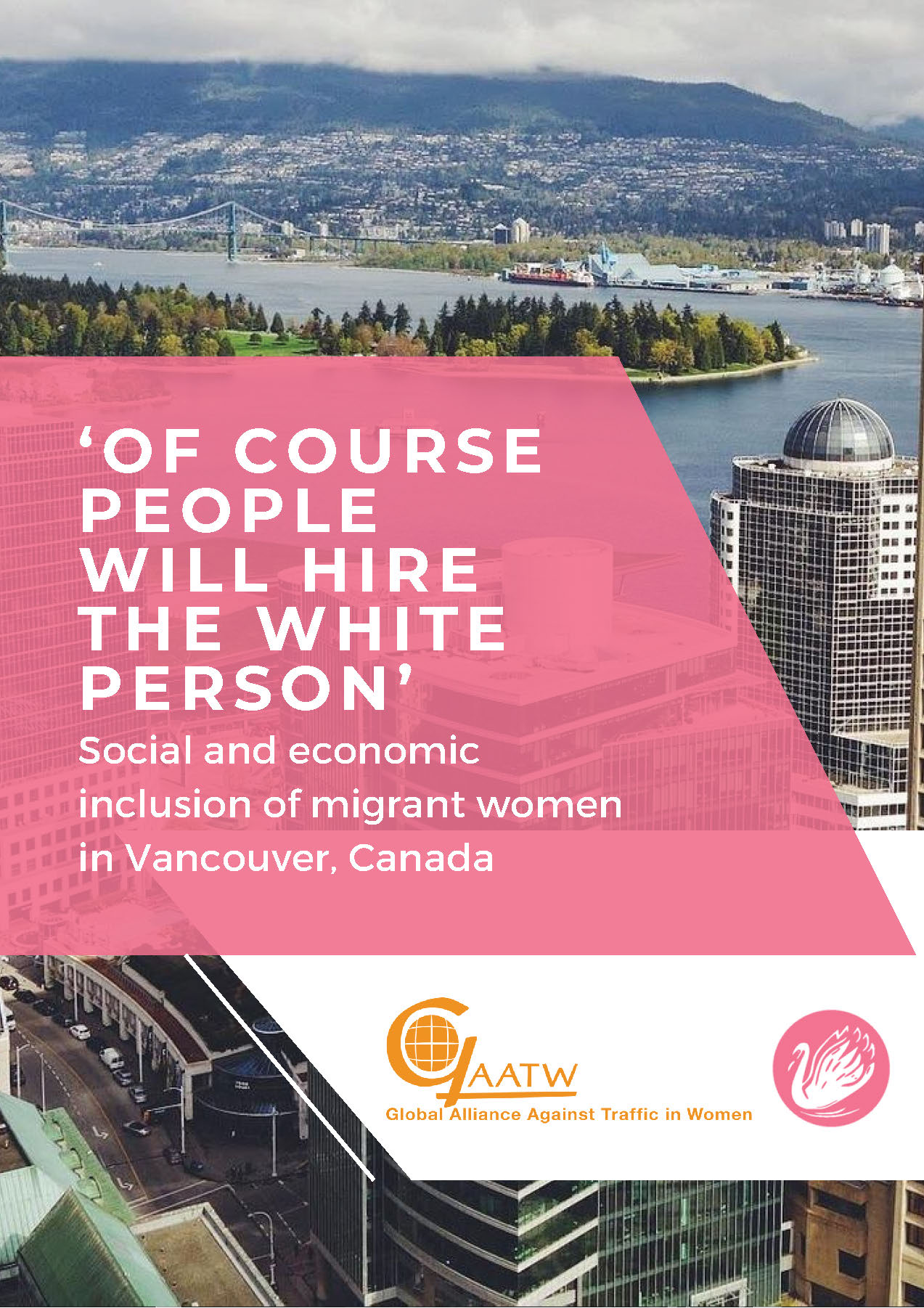
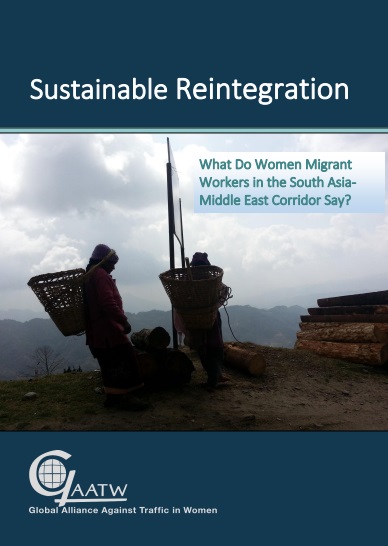
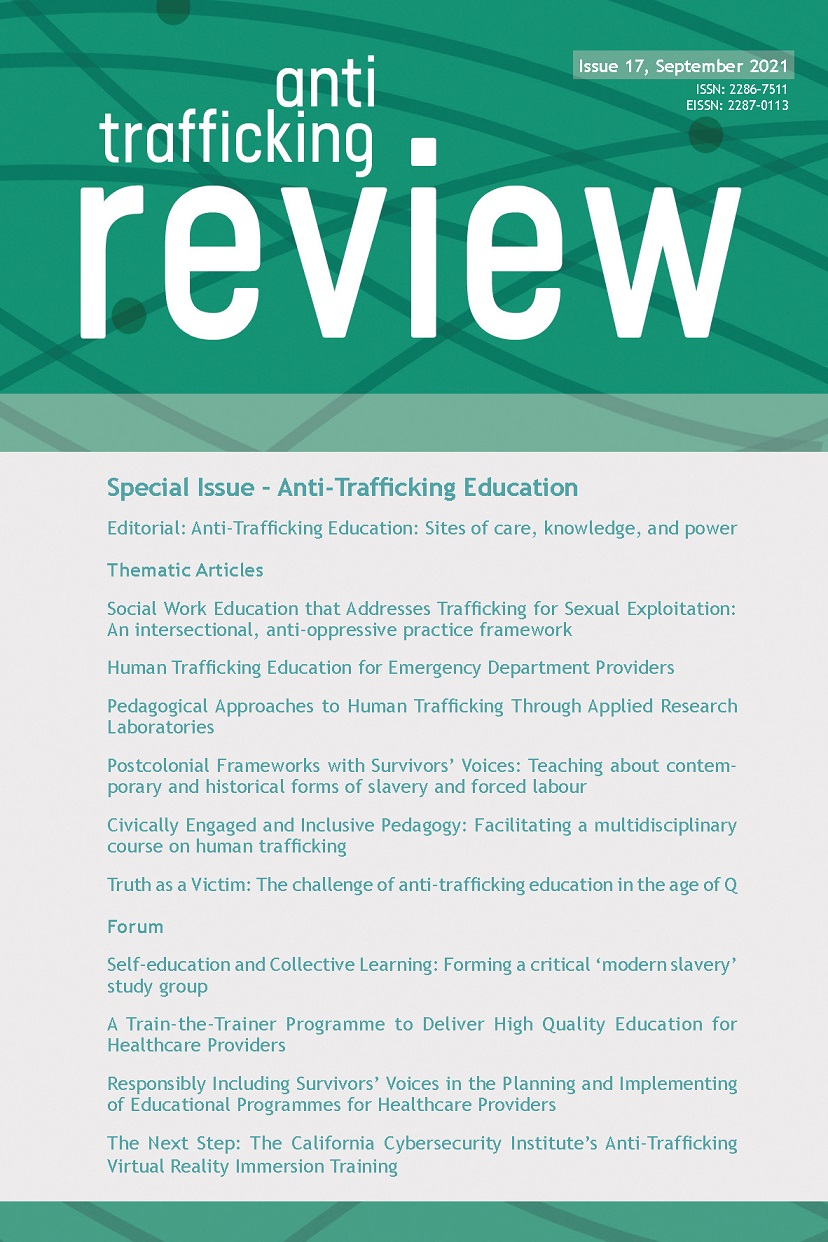
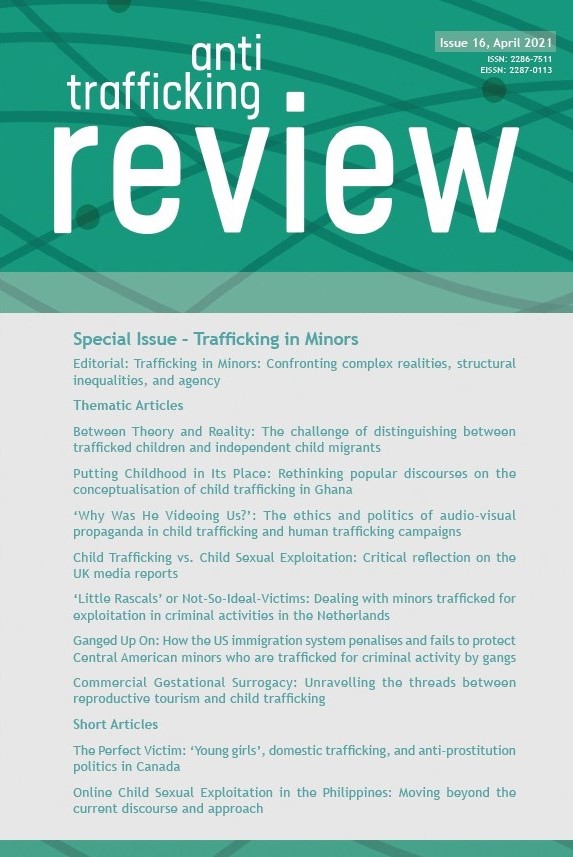
.pdf - Adobe Acrobat Pro 2_8_2021 4_36_32 PM.png)
